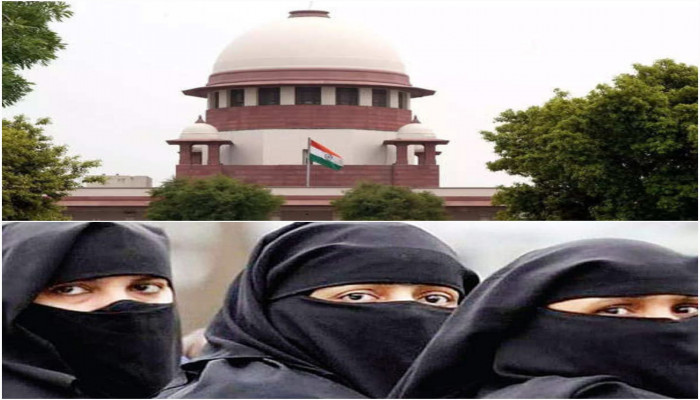SC declares Sharia Courts and Kazis have no legal authority, grants maintenance rights to Muslim woman
- In Reports
- 05:49 PM, Apr 29, 2025
- Myind Staff
The Supreme Court of India has ruled that decisions made by religious bodies like the ‘Court of Kazi’, ‘Darul Kaja’ or ‘Court of Kajiyat’, and ‘Sharia Court’ have no legal standing and cannot be enforced under Indian law. This decision was made during the hearing of a case where a Muslim woman had approached the court for maintenance from her husband. The husband had previously obtained a talaqnama from a religious institution in Bhopal and tried to use it to avoid paying. The court, however, clarified that such religious forums are not recognised by Indian law, and their rulings hold no legal authority.
"Court of Kazi’, ‘Court of (Darul Kaja) Kajiyat’, ‘Sharia Court’, etcetera, by whatever name styled, have no recognition in law,” the bench of Justices Sudhanshu Dhulia and Ahsanuddin Amanullah said, referring to the earlier 2014 ruling in Vishwa Lochan Madan v Union of India. “Any declaration/decision by such bodies, by whatever name labelled, is not binding on anyone and is unenforceable by resort to any coercive measure,” the court mentioned. The bench further said, “The only way such declaration/decision can withstand scrutiny in the eye of law could be when the affected parties accept such declaration/decision by acting thereon or accepting it and when such action does not conflict with any other law. Even then, such declaration/decision, at best, would only be valid inter se the parties that choose to act upon/accept the same, and not a third party.”
The couple, both in their second marriages, got married in 2002. The husband, a BSF personnel, and his wife had two children. However, their relationship began to fall apart, and in 2005, the husband filed for divorce in the 'Court of Kazi' in Bhopal. That case was resolved with a mutual agreement on November 22, 2005, where they decided to continue living together. But things worsened over time. The wife accused her husband of physical abuse and demanding dowry, including a motorcycle and ₹50,000. She also claimed he eventually forced her and their children out of the house in May 2008. Later, in September 2008, the husband again sought a divorce in the 'Court of (Darul Kaja) Kajiyat' in Bhopal.
A month later, the woman filed a petition in Family Court requesting ₹5,000 per month for herself and ₹1,000 each for her two children. The court granted maintenance only for the children, reasoning that she had left her marital home alone without a valid reason. It also noted that dowry demands were unlikely since it was a second marriage. In 2018, the Allahabad High Court supported this verdict, agreeing that her separation decision wasn't justified and the Family Court's ruling was reasonable.
The Supreme Court disagreed with the lower courts' interpretation, stating that the 2005 agreement only mentioned the couple’s decision to live together peacefully. It ruled that this alone was not enough reason to deny the woman her right to maintenance.
The bench strongly criticised the Family Court for assuming that dowry cannot be demanded in a second marriage. “In her application for maintenance filed under Section 125 of Criminal Procedure Code, the appellant contended that respondent No.2 (husband) had caused cruelty to her as she was not able to fulfil his demand for a motorcycle and Rs 50,000. On this aspect, the Family Court noted that since it was their second marriage, there is no possibility of a demand for dowry by him, as he would be trying to rehabilitate his house. Such reasoning/observation by the Family Court is unknown to the canons of law and is based on mere conjecture and surmise,” the bench said.
The Supreme Court also cautioned against judges exceeding their legal roles. “The Family Court will do well, henceforth, to bear in mind the observation in Nagarathinam v State, that the ‘court is not an institution to sermonise society on morality and ethics’,” the Supreme Court stated.
The court reversed its earlier decision and awarded the woman ₹4,000 per month in maintenance, starting from the date she first filed the petition. It also ordered the husband to continue helping their children financially until they become adults. Although this case involves a personal conflict, it reinforces a key constitutional idea: religious rulings or arbitration cannot substitute for or override the Indian legal system. Individuals may follow such decisions independently, but they cannot be legally enforced. Regarding rights granted by law, like maintenance, only Indian courts have the power to make binding decisions.







Comments